6 Surprising New Rules for Tipping, According to Etiquette Experts
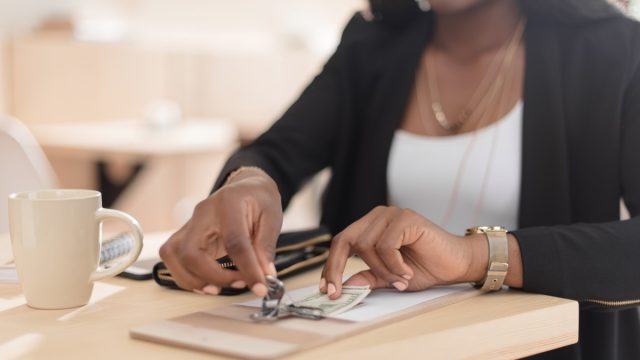
During the COVID-19 pandemic, it was normal to shell out a few extra dollars to tip service and restaurant workers. Without in-person dining, these employees faced a loss of income—and many of us compensated by tipping on takeout and to-go orders. As a result, tipping culture has seen a massive shift, with some surprising new rules now taking shape.
“Tipping has undergone significant changes in recent years. Traditional tip jars have been replaced by more persistent screens, making it difficult to ignore or decline the option to tip,” Kristi Spencer, etiquette experts and founder of The Polite Company, tells Best Life.
This new model can make many people feel flustered. “Consumers are facing the tipping screen in locations where they never tipped before and are having a hard time knowing how to handle it,” says Jules Hirst, an etiquette and lifestyle coach and founder of Etiquette Consulting.
If you’ve found yourself puzzled while trying to navigate one of these tablets, or have simply felt “tip fatigue,” you’re not alone. There’s no concrete set of guidelines or laws about tipping, but there are some nuances you should be aware of to help the process go smoother. Read on for etiquette experts’ six new rules for tipping.
READ THIS NEXT: 6 Places You Should Never Tip, According to Etiquette Experts.
1
There’s a new percentage norm.
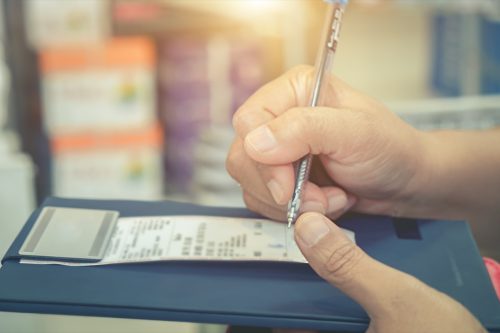
If you’re still tipping 15 percent when dining out or getting your hair done, experts say you may want to reconsider.
“Traditionally, the tipping percentage was considered to be 15 percent. Now, 18 percent is the new norm and can go as high as 20 to 22 percent,” Hirst says. “Consumers are expected to tip more at a time when inflation is limiting their buying power.”
Spencer also cites this change, but says 20 percent is actually your best bet.
“The suggested tipping percentages continue to rise,” she says. “Nowadays, a 20 percent tip is considered appropriate for full-service restaurants, salons, and ride services.”
2
You’re expected to tip within your means.
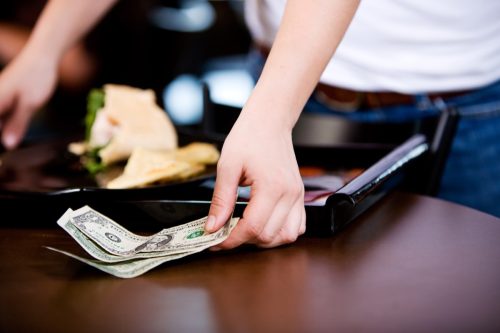
While percentages tick up, there’s also an understanding that not everyone is able to tip on the higher end of the spectrum.
“People are expected to tip based upon their lifestyle,” Jodi RR Smith, etiquette expert and owner of Mannersmith, tells Best Life. “If you are going to fancier salons, receiving more deliveries, frequenting nicer restaurants, and traveling to posher vacations, you will need to increase your tipping budget to cover the services you are enjoying.”
READ THIS NEXT: Always Use Cash for These 5 Purchases, Financial Experts Say.
3
It’s now customary to tip in unexpected places.
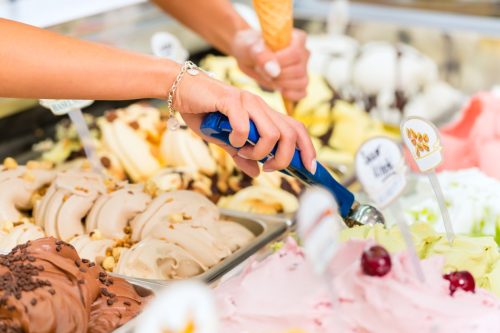
Perhaps one of the largest changes to tipping culture is that gratuities are now expected in somewhat surprising places. “Take-out food, which used to be exempt from tipping, now commonly receives a 10 percent tip,” Spencer says.
Smith also points to this as something customers have had to adjust to. “Now people are prompted to tip when paying programs with POS (point of service) computers—and in places not customarily considered for tipping. Handing a customer a coffee or doughnut or ice cream is generally not a tippable service,” she says.
If you’ve never tipped on a particular service and aren’t sure where to start, staying within 10 to 15 percent is a safe bet.
4
You have to read every bill.

Etiquette experts also stress the importance of reviewing your bill, as it’s now common for gratuities to be included ahead of time “Consumers also should read their bill before tipping. Some businesses are including the tip on the bill, so you do not want to double tip,” Hirst says.
She also says that in other instances, there may be a service or delivery fee, which can be misleading. “These fees seem like tips but are not, so consumers need to understand what is showing up on their bill. When in doubt, ask,” Hirst suggests.
For more financial advice delivered straight to your inbox, sign up for our daily newsletter.
5
You should always carry small bills.
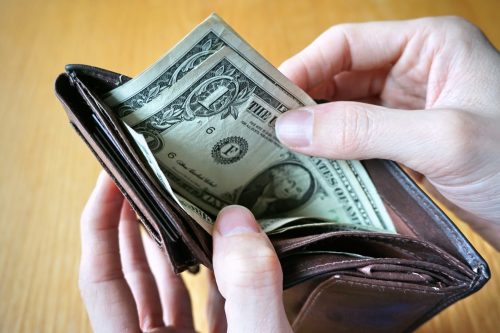
While tablets and technology allow businesses to ask you to tip electronically, it’s also a good idea to carry around a few small bills these days. According to Hirst, this can “alleviate the tip guilt,” and avoid the need to calculate percentages. “You will be giving a tip and controlling the amount,” she explains.
Spencer also recommends carrying some cash, even if it’s easier to swipe your credit card. “Keeping cash on hand makes it easy to show immediate appreciation, especially when you can’t add a tip to the service bill,” she says.
6
You aren’t obligated to tip in every instance.

While it would be frowned upon not to leave a tip for your server at a restaurant, etiquette experts say there are other instances where the practice isn’t necessary.
“The most important thing to remember is that you can always say no to tipping,” Hirst says, adding that picking up a to-go order or a coffee “doesn’t necessarily require a tip.”
“It would be generous, but you must take into account your personal financial situation,” she says. “While you can always hit skip or other when faced with the tablet tipping question, you can also tip more if you feel the service was worth it.”